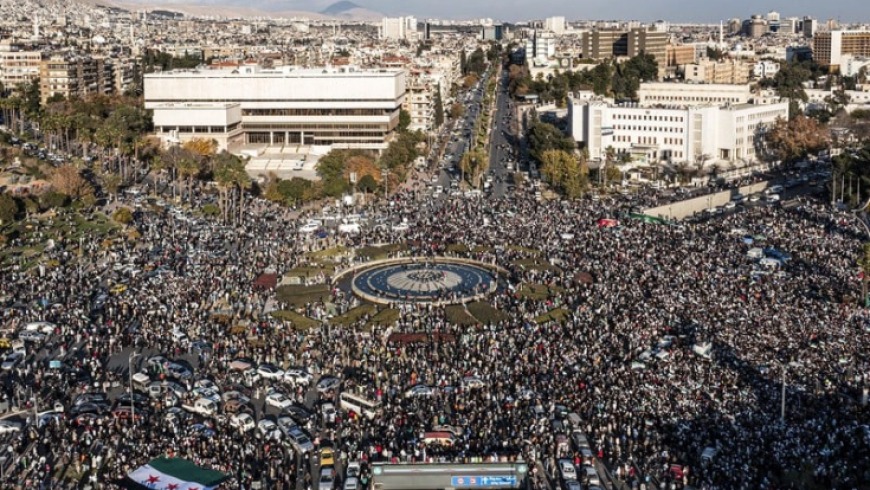A debate has emerged on social media surrounding the phrase: “The majority decides the form of governance and life, and in Syria, the majority is Sunni Muslim, so everyone must submit to its will.” This statement, often used to justify actions by the current interim government and Hay’at Tahrir al-Sham (HTS), reflects misunderstandings about democracy and the composition of Syria’s majority.
Majority Rule in Democratic Systems
In democratic systems, majority rule typically refers to political parties, not religious or ethnic groups. Parties in these systems represent diverse segments of society and operate under constitutional frameworks that ensure checks and balances. Decisions affecting daily life or major policies require parliamentary approval, representing all societal groups. Importantly, democratic systems uphold equality among citizens, regardless of religion, ethnicity, or gender, ensuring no group dominates based on identity.
In Syria, decades of political repression under the Assad regime eroded political engagement and fostered divisions along sectarian and tribal lines. This has prevented the development of a national identity, leading to fragmentation and conflict. Misunderstandings of “majority rule” in Syria stem from oversimplifying the Sunni Muslim majority as a homogeneous group, ignoring its internal diversity and regional differences.
The Diversity Within Syria’s Sunni Majority
The Sunni Muslim majority in Syria is far from uniform:
- Urban vs. Rural Islam: Urban Islam is often conservative yet moderate, while rural Islam, affected by conflict and marginalization, has seen rising religiosity and, at times, extremism.
- Diaspora Exposure: Many Syrian Muslims in exile have engaged with liberal and pluralistic values, broadening their perspectives and challenging rigid religious norms.
- Secular and Non-Religious Muslims: A significant number of secular and non-religious individuals within the Sunni majority challenge the notion that the majority is defined solely by religion.
While Syrian minorities are often socially progressive, they maintain strong ties to their religious identities, using them as a protective mechanism in a majority-dominated society. Historically, minorities have played limited roles in driving major social change, which often originates within the diverse majority.
Flaws in the Current Majority Rule Argument
The notion that the Sunni majority can impose its will overlooks its internal divisions and diversity of thought. It also fails to consider the broader implications of governance based on a single ideological framework:
- HTS’s Vision: The current interim government led by HTS reflects a narrow, exclusionary ideology that does not represent all Syrian Muslims, let alone the broader society.
- Economic and International Repercussions: Imposing a rigid governance model discourages investment and international cooperation, which are critical for Syria’s recovery.
- Rejection by Syrians: The majority of Syrians, including intellectuals and professionals within the Sunni majority, reject a restrictive vision for the country.
Syria’s society, at its core, is civic-minded and diverse. The imposition of rigid ideologies, whether by HTS or other groups, clashes with this inherent pluralism. While conflict and displacement have pushed some segments toward extremism, these tendencies are situational and likely to dissipate with stability and inclusivity.
This article was translated and edited by The Syrian Observer. The Syrian Observer has not verified the content of this story. Responsibility for the information and views set out in this article lies entirely with the author.


